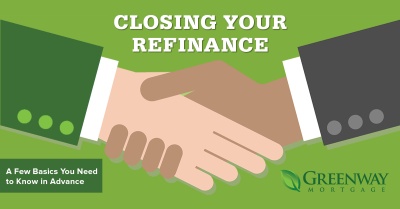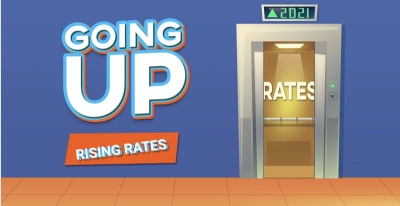
If you’re in the market to buy a home in the coming months, you may already have discovered that the competition is tight and the inventory is low in many areas of the country.
This housing shortage is the result of a few key factors according to Gay Cororaton, senior economist and the director of housing and commercial research at the National Association of Realtors (NAR).
With less than a 2-month supply of homes for sale on the market, the inventory in January 2021 fell nearly 26 percent compared with January 2020, NAR reports.
“All in all we’re short now about 3 million homes,” Cororaton said. “That’s a lot of homes to catch up on.”
(Source: BankRate.com)
However, there are several things you can do to increase your opportunities, even in this current market. It all comes down to being prepared.
- Get pre-approved before you shop for a home
- Working with your lender before you go shopping can save you time, heart-ache and head-ache.
- When a home is still occupied by the sellers, they sometimes only allow showings from pre-approved buyers to minimize traffic. Sellers can be assured that only serious buyers who are ready to make an offer come and view their home.
- A pre-approval gives confidence to the real estate agent(s) you are working with so that they can show you homes in the right price range.
- Buy a fixer-upper
- With a market that has low inventory, sometimes getting a fixer-upper can be a great move to make, and to sweeten the deal you get to put your own touches into it.
- Learn more about Renovation Loans here
- Work with a licensed real-estate agent
- If you’re looking to buy your dream home in a market with low inventory it’s important to have a licensed real estate agent by your side to guide you through the process
- Be ready to move
- Real estate markets with low inventory can turn over quick! Most buyers and sellers have contingencies on other contracts that restrict the amount of time before they can close.
- The average contract length is shorter and requires you as a buyer, to be ready to move quickly.
- Start packing and researching your moving options early in the process, so the moving process is as seamless as possible once you’re under contract.
- Avoid shopping at the top of our budget
- In low inventory markets, houses tend to sell over asking price due to competition amongst buyers. Therefore, it is wise to stay away from homes that are at the absolute top of your price range.
It may seem daunting, but by following these tips to be prepared you will position yourself to navigate the home buying market with confidence and peace of mind.
If you’re looking for more guidance as you start your home search, head over here to read 5 Tips For Starting Your Home Search
Image Credit: Stephanie Harvey on Unsplash

Condos come with many perks, but they aren't for everyone. However, they can be a great way to dive into homeownership without worrying about all the upkeep that comes with a single-family home or townhome. And, condo owners can also take advantage of shared amenities, plus having professional management to take care of building maintenance is always a key benefit -or at least we think so!
Whether you should buy a condo, a home, or rent really comes down to where you are in life, and what your preferences are. Today, let’s tour the benefits of why a condo might be a great path to homeownership.
What is a Condo?
Short for condominium, a condo is a single unit within a multiple-unit property, usually an apartment style building or community. It can be one of many units in a shared structure like a high-rise building. You can also own your own unit, share common areas and amenities of the community with your neighbors. This includes perks such as: parks, pools, playgrounds, gyms, and other public spaces.
Most condos are part of a homeowner association (HOA) that makes and enforces rules for its property. Condo owners are primarily responsible for maintaining everything within their own unit and must pay mandatory membership fees for the upkeep of common areas and building maintenance costs.
Benefits of Condo Living
- One of the biggest benefits of living in a condo is that other people do the maintenance for you. So, if you dislike doing things such as mowing the lawn, trimming hedges, shoveling snow, or replacing siding (just to name a few), then condo living may be the way to go.
- Condos are also a good option for those who want to age in place as neighbors are nearby, experienced maintenance staff will take care of big repairs and there are community activities!
Desirable Locations
- Condos can often be found in downtown areas and represent the most cost-effective way to get the big-city lifestyle.
Security
- Some condos offer gated or have locked entries, doorkeepers or professionals for residents. If you live alone this could certainly be reassuring.
Amenities
- Dreaming of a pool or perhaps a fitness center? Many condo associations offer these types of resident amenities. If you’re an outgoing person, or simply like the hustle and bustle of having others around, a condo can be a great way to meet new people
Affordability
- Condos are less expensive. They are usually the more affordable real estate investment properties. The median sales price for a condominium in October 2020 was $273,600, according to the National Association of Realtors. In that same month, the median sales price for a single-family home was $317,700.
- Lower pricing can make condos a more affordable option, especially for first-time home buyers. While investing in a condo might be the more affordable option, you must consider condo fees. However, even with these costs, the average condo is smaller and thus cheaper than the average single family rental property.
- Bottom Line: Find an area you love and do some research. Remember, if you’re on a tight budget a condo can be a great first step.
Build Equity
- Your monthly mortgage payment builds home equity when you own a condo.
On the flip side… here are a few cons of living in a condo:
- Most condos offer services that other real estate properties do not like a fitness center, swimming pool, security system, etc. And, because of this, the HOA fee can range from $100 to $700 a month depending on location and other factors.
- At times, the condo owner’s association may levy a “special assessment,” or a significant fee charged to each condo owner to cover major updates or upgrades. For instance, replacing a roof, resurfacing a pool deck, or upgrading plumbing.
- With fees, come HOA rules. These rules apply to you and your tenants which include things such as parking, pets, renting out your condo, etc. Tip: Make sure to review all rules and regulations first to determine if it will be a good investment for you.
Lack of Privacy
- In a condo you have neighbors on the other side of your walls and perhaps above and below you as well. If you’re looking for peace and quiet, a condo may not be a good fit for you.
Parking and Storage Issues
- Some (not all) condos have assigned parking which may mean a longer walk to your front door.
- Storage is sometimes limited, and some condos do not have any outdoor storage space. Are these types of things important to you? We suggest making a “Needs and Wants” list to help you decide.
Rental restrictions
- If you’re planning on investing in a condo, make sure that you can rent it out as you like. Some condos may prohibit rentals, while others have specific rental restrictions.
Is buying a condo worth it & should you consider it?
- When evaluating if a condo is the right investment for you, it’s a good idea to take into account more than just the location and mortgage and factor in the monthly condo dues as well.
- You like the apartment lifestyle: If you’ve been renting and want to ease into homeownership, a condo could be a fantastic first step.
- You’re busy: If you have a crazy work schedule that requires lots of travel, a condo may be a good choice to avoid a lot of exterior upkeep.
- You’re older and want to downsize: Condos are great for older folks who don’t want to deal with property maintenance and all the hassles that come with it.
Bottom Line
Evaluate all the potential positives and negatives before you decide to invest in a condo. If you decide a condo is a good fit for you, make sure to read and review the condo’s association documents. And, before you agree to buy a condo, make sure they are in good financial condition.If you’re ready to take the next step into condo ownership click here to get your free pre-approval.
If you want to talk to one of our Loan Experts – reach out. We’re happy to answer any questions you may have.
Image Credit: Photo by Andrea Davis on Unsplash

As you look for a home, speed may be something you value highly. Pre-approval, getting an offer accepted, and of course moving in. Online lenders like Rocket Mortgage from Quicken Loans have capitalized on this, creating more demand for speed and swiftly brushing off the other key values of working with a boutique mortgage lender. But jetting off towards your dream home may not be all there is to the story.
According to Investopedia - Online mortgage companies have become an increasingly significant force in the home loan industry.
Leading the charge is Rocket Mortgage, with its automated approval process. Do these web-based firms have more to offer than boutique lenders? Not necessarily. Many clients need more than just a web portal to interface with and want a professional they can trust to guide them through the process and explain the many details of securing financing on what is likely the largest transaction a home buyer will be a part of.
Here are a few key benefits that differentiate Erin The Expert’s Mortgage Team from the automated lenders like Quicken Loans...
-
Trust a Professional Loan Consultant, Not a Bot: Every loan scenario is as individual as the clients themselves and it takes a person with knowledge and experience to properly structure a mortgage that’s right for those individuals and the specific home they want to purchase. What does this mean? There are so many variables that go into a mortgage from the clients’ income amount and type to credit score and employment history. Do they have a co-borrower? Is the property a condo? Should they go FHA or conventional? Is there a gift involved? The list goes on and we don’t trust AI to get this right. Instead we encourage those looking to purchase a home to speak with one of our Professional Mortgage Experts so they can get a complete picture and work with the client to structure a mortgage that is ideal for them.
-
Experience High Tech & High Touch: Erin The Expert’s Mortgage Team doesn’t live in the stone age but expecting to push a button and get a mortgage is simply not realistic. We leverage technology to make the loan process as smooth and efficient as possible. And our team is there to guide clients through the process and help them understand the intricacies.
-
Be A Lifelong Client: Our relationship doesn’t end once your loan closes. We want to be your trusted professional for the long term. Moving up? We’ll be there to help with a new mortgage. Rates dropped? We’re keeping an eye on your file to let you know when it’s time to refinance.
So before you rocket off towards an online mortgage company, consider a boutique one in your area first.

When closing your refinance there are a few basics you need to know in advance.
Your “payoff amount” is always higher than your remaining principal balance.
Your balance is the amount of remaining principal owed. Your payoff amount is the balance plus prorated interest from the last payment received until the loan is actually paid off.
The funding date is usually different from the closing date.
The government mandates a three-day rescission period for refinances of primary residences. Loan payoffs will not occur until the fourth business day post-closing. This will affect the payoff amount, the final payment date and the release of any cash.
Don't count on your existing escrow funds for closing.
If you have an escrow account for taxes and/or insurance, these funds will be held there until the current loan is paid off. Accordingly, unless funds for taxes due and/or a new escrow account are covered by the new loan, be prepared to advance this money at closing. It will typically take several weeks before your current escrow account funds are returned to you, so it pays to plan ahead.
As always, we’re here to help you with your transaction and to answer your questions. We want you to be comfortable with the process and understand it fully. Never hesitate to reach out.

After a string of record-breaking low mortgage rates last year, 2021 has ushered in a new direction for rates. Unfortunately, that direction is up.
It’s not all bad news though. Rates are rising due to expectations that trillions in new economic stimulus will spur a faster economic recovery.
The downside of recovery is inflation. And the investors that influence mortgage rates through the purchase of mortgage bonds really hate inflation. They’ll be less likely to buy the bonds, the bonds’ value will drop, and rates will rise.
Rates are moving from the lowest point ever. Even if they’re a little higher than last year, they’re still low by historical standards. If you’ve been waiting to secure a still-low rate for a home purchase or refinance, now may be the time to do so.
Want to see how your rate stacks up to national average rates and how much you may be able to save? Click here or on the image below. Remember, rates will vary based on your specific situation. You might even get a better rate than the average.
Things can change quickly, so reach out today and let’s discuss what may work for you. 908-489-4658.





